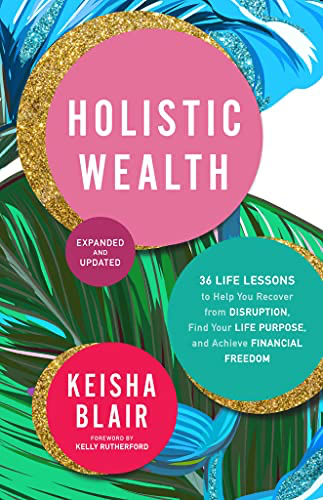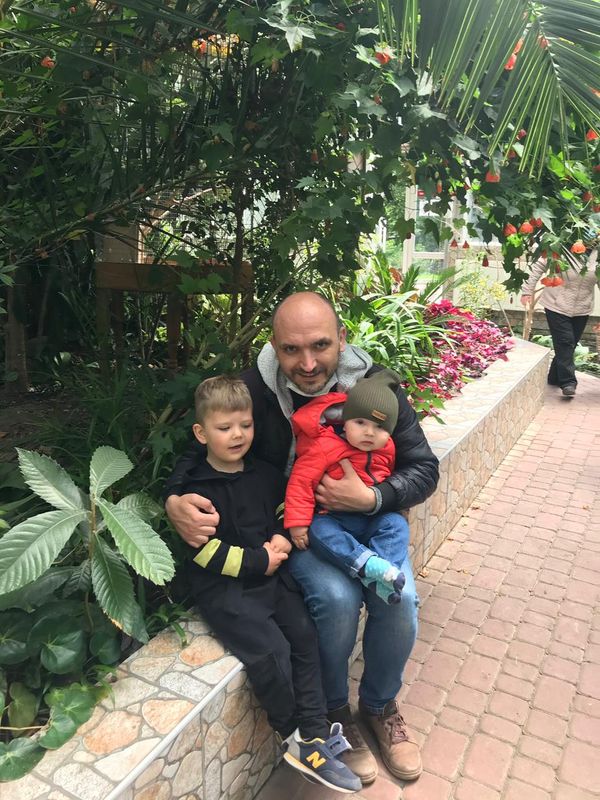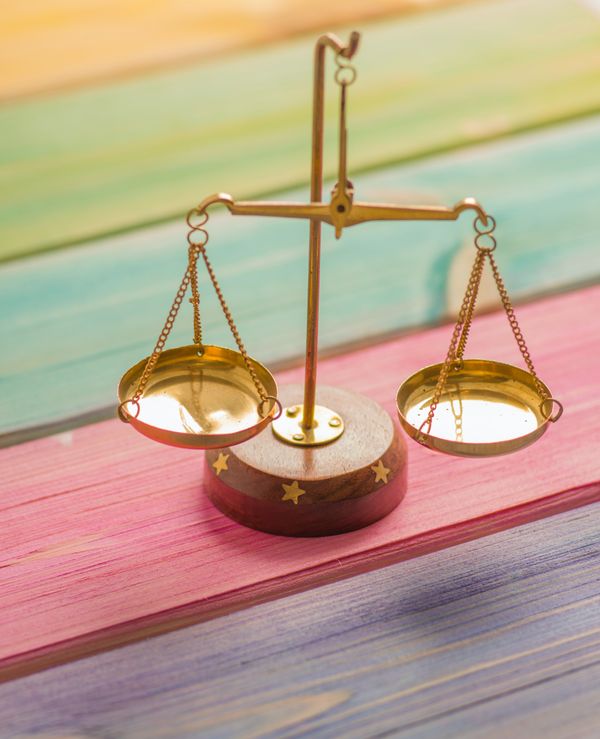Keisha Blair on Holistic Resilience, the Power of Intuition, and Hitting the Pause Button
We oftentimes can't forecast when and how we'll encounter life's inevitable curveballs, but Keisha Blair shows us that preparation, and redefining success can make all the difference.
Award-winning author, economist, entrepreneur, wife and mother-of-three, Keisha Blair, is the embodiment of triumph over tragedy with a comeback story that is awe-inspiring. Keisha wrote a viral piece a few years back about the life lessons she learned after the sudden death of her 34-year-old husband, inspiring tens of millions since.
Truffld: In your book, Holistic Wealth, you referenced the time period after your husband, Garfield's death that forced a period of self-reflection. You took a sabbatical with your children, found solace among your roots in Jamaica, and stepped away from a high-velocity career path. Though the slower pace was ultimately the best route in terms of healing and growth, you did notice with a sense of unease, that a lot of your female colleagues were still full-steam ahead, rising the ranks in their respective career fields, and that made you feel a sense of urgency to catch-up. I see this often – perhaps it's societal or universal – where men and women alike are conditioned to focus on a job title, hitting certain corporate "milestones" or salary as metrics for success. How do we start to shift that mindset?
Keisha: This is something that we're all thinking about even more as we come out of Covid-19. I can give an answer based on economics since I'm an economist [laughing] – I honestly have a draft of an article I started to write that's titled, Economics Needs a Refresh, because I think that our societies traditionally were based on these very outdated notions of what productivity meant. And if we look at metrics like GDP at a country level – and given what I've been through and what I've learned – I'm seeing how flawed that is, especially during Covid because we're a society of burnout, and loneliness, and ill health to a point it sets us back; what I experienced as an individual, I feel as though we've faced now on a global scale. It [Covid] drove home to us how much more we need to be resilient, and so more resilient indicators of wealth are needed, which is why I came up with Holistic Wealth.
When my article first went viral, the book publisher at the time wanted me to write a money book but I couldn't do that because money alone didn't get me through the sudden loss of my husband; it was everything else – the financial security was a major pillar, yes, but the sabbatical that you mentioned, taking that pause and really healing, and figuring out what I was here on this Earth to do, and then it became so clear to me.
This is why it's also so important to create change from within our organizations, because when those setbacks come – women, mothers and our kids are usually most affected – we're in a state of crisis, and really need the tools in that toolbox that will give us that resilience. We have our economic resources and our moral resources, and the combination of the two is needed. During this pandemic our moral resources have been highlighted through how we protect each other, how we give back and reach out and consider one another as well as our mental and emotional health. As a policy person I've thought about the same question you're asking: Through our organizations and even at the state level, maybe we can think about how we define success at a larger level so that people will start to internalize that notion that their value isn't just tied to productivity; that if they can take a step back for a moment to re-evaluate, they'll come back even stronger than before and contribute in a more meaningful way.

Truffld: Since Garfield's passing you've remarried and now have a daughter. You said in Holistic Wealth: "I will never teach my daughter that there's only one kind of woman to be." Can you expand upon that in how you implement this mindset in the way that you're raising your daughter?
Keisha: That line in the book means so much to me. We're sometimes raised to fit this societal notion of what we're expected to be and do, and I'd love to delve into this, maybe even writing a children's book, to explain to little girls that they can be all they want to be.
My daughter comes home nearly every day and tells me that the boys tell her she can't play a sport with them because she's a girl, and that she needs to come off of the field. Every day she comes home with these limiting messages – not limiting beliefs, because she thankfully doesn't believe it – but it's society telling her there's one type of girl to be. Looking back at my journey as a little girl, I didn't know I'd be widowed at age 31, and maybe in hindsight, who knows any number of things I would have done differently, but knowing what I know now is how can I play my card in helping her to be more resilient when she encounters challenges.
I'm in a male-dominated field as well where I have been given those 'women aren't good at math,' or 'women aren't good at economics' messages. The men get the promotions in the field quite often – it's kind of like an 'old boys' club,' so I know in my heart how difficult it is; I love to tell that little girl in me growing up, 'Don't even listen to what they're saying. Just go after it, and never, ever stop. You have a place and deserve to be here, regardless.'
Truffld: I read that you were "always trying to get somewhere fast," growing up because you were an only child and worried that if your parents passed, then you would be an orphan; you were determined to be self-sufficient as quickly as possible. One day you did feel orphaned, but through the loss of your husband. After Garfield passed, did you again feel a sense of urgency to live your life in a race against time?
Keisha: Absolutely. I experienced it as a child because when my parents had me, my dad was approaching age 50. But after my husband died it got worse because I kept thinking, 'I'm now a widow with two kids. I have to step up, be the best I can, and do more -- invest more, try to compensate for this ticking clock, and what if I die now? Then they're [my kids] orphans.'
I don't know if before my husband died it was my intuition preparing me or some sixth sense...I remember sitting in the front row of the theater [for Garfiield's funeral] beside my dad who I thought was old at the time while I was growing up, and he was the one who was still alive, and there was the casket with my dead husband right in front of me, who was just 34.
Truffld: You write quite a bit in Holistic Wealth about the importance of tapping into one's intuition. In the midst of this frenzied pace that seems to define Western culture, how can we be on the lookout for some of the indicators that are telling us it's time for a Holistic Wealth intervention?
Keisha: I remember from my experience feeling so burned out, so exhausted, feeling like I was on this hamster wheel; like life was meaningless. In the midst of losing Garfield I went through this existential crisis. If you feel like you've hit that brick wall in life where you're questioning the very notion of your purpose, and things seem chaotic around you to a point where you 'can't see the forest from the trees,' then I think that's the time for a Holistic Wealth intervention – to be able to hit that pause button to refresh, reenergize, refocus, and to reemerge differently from the type of life you've been living.
*To connect with Keisha, find her on IG, Podcast IG, FB, Twitter, TikTok, KeishaBlair, and to purchase Holistic Wealth.



